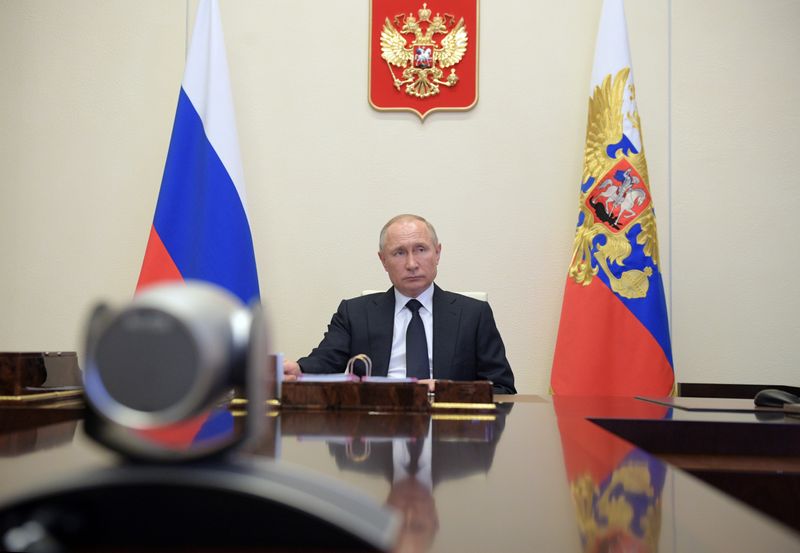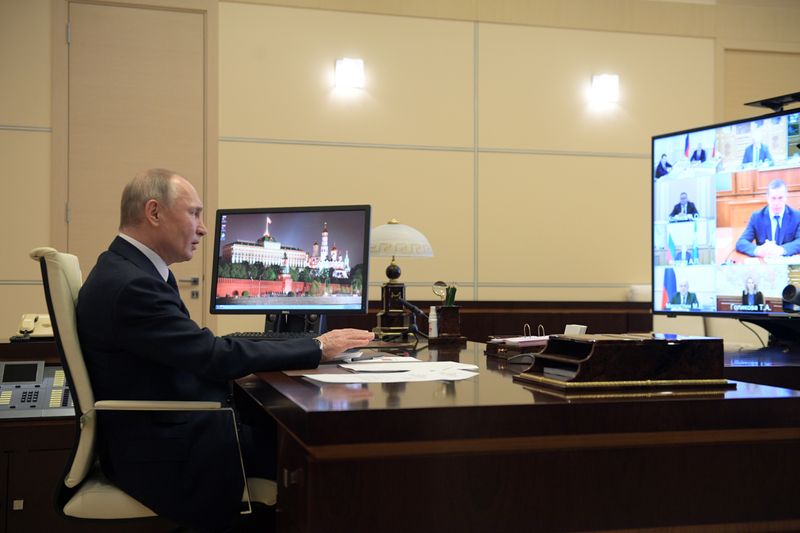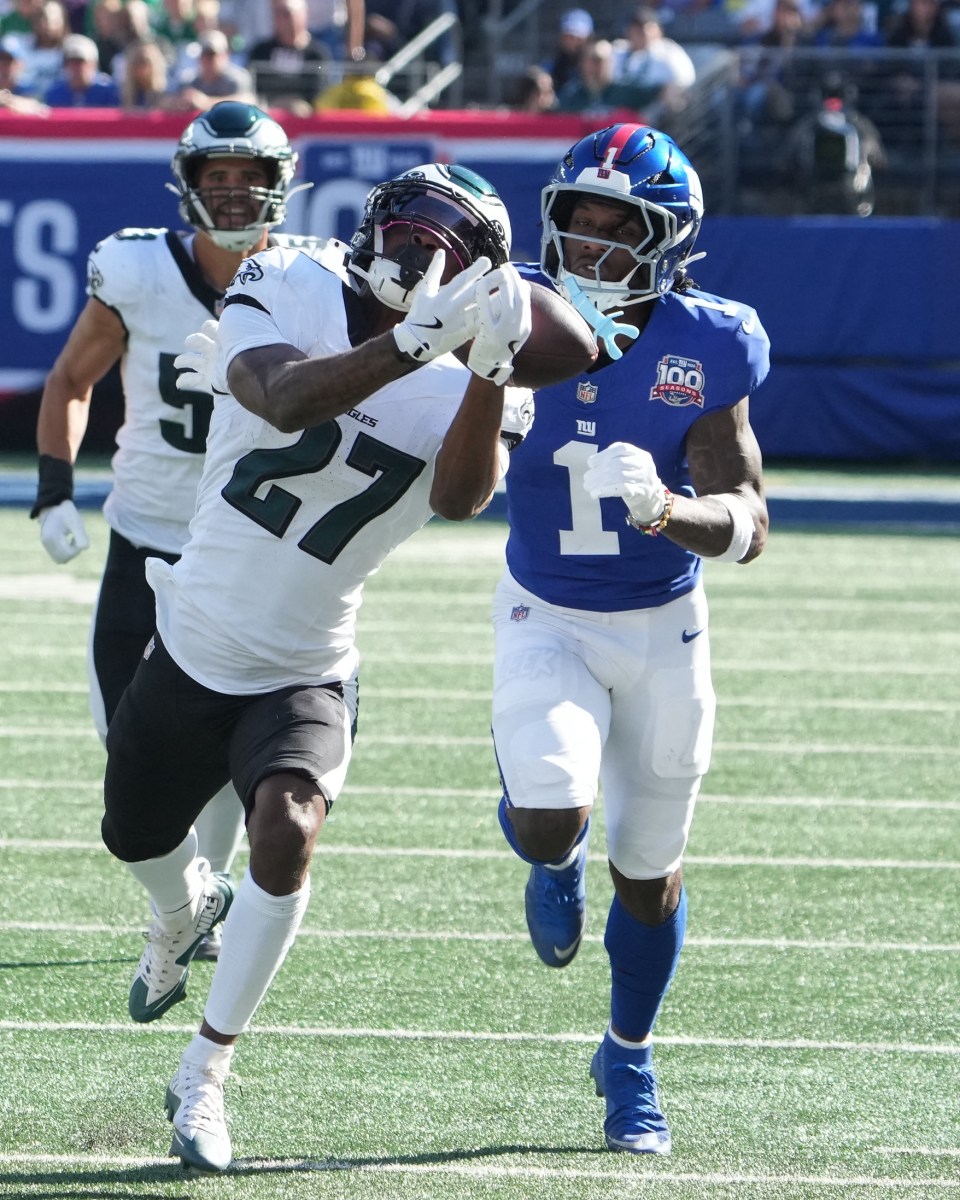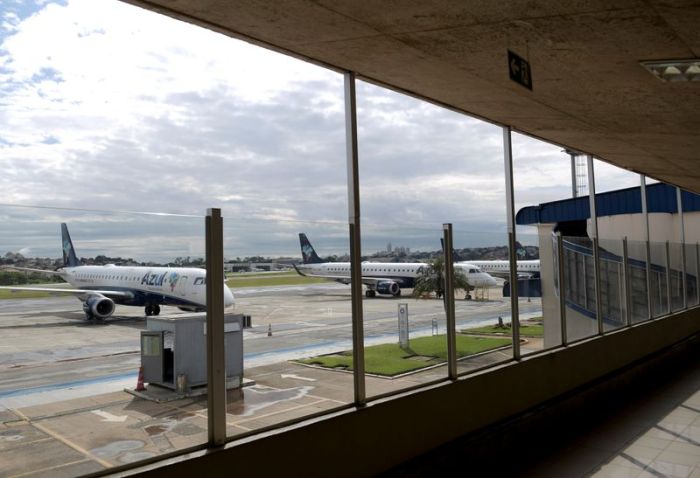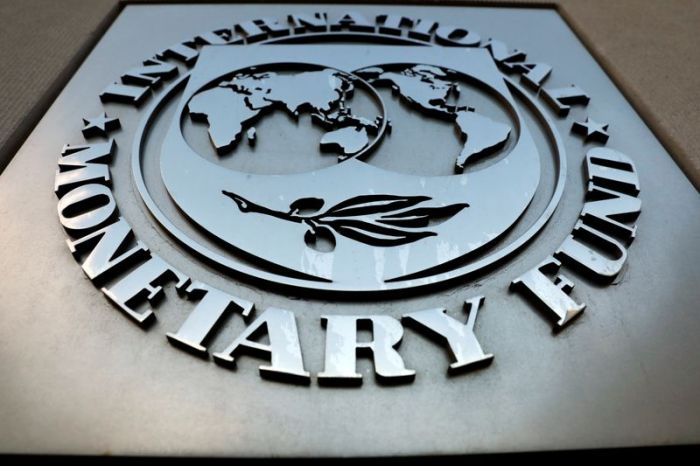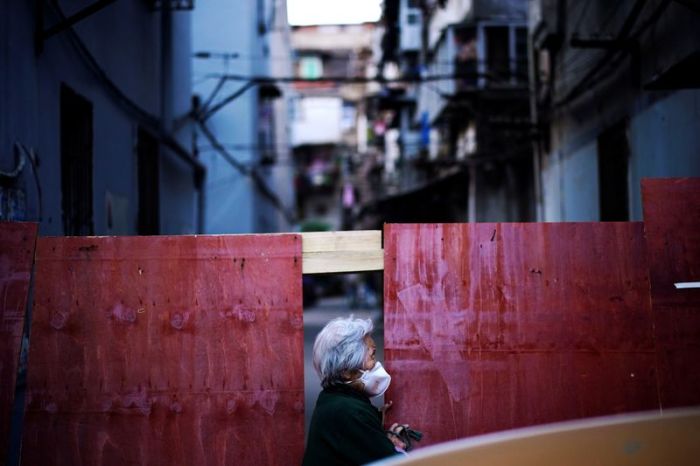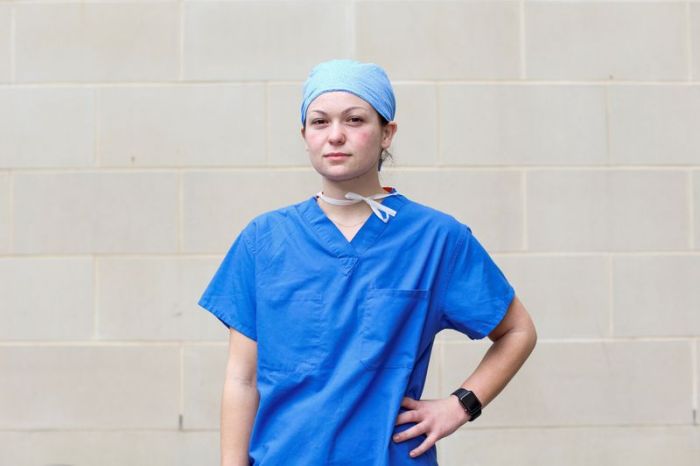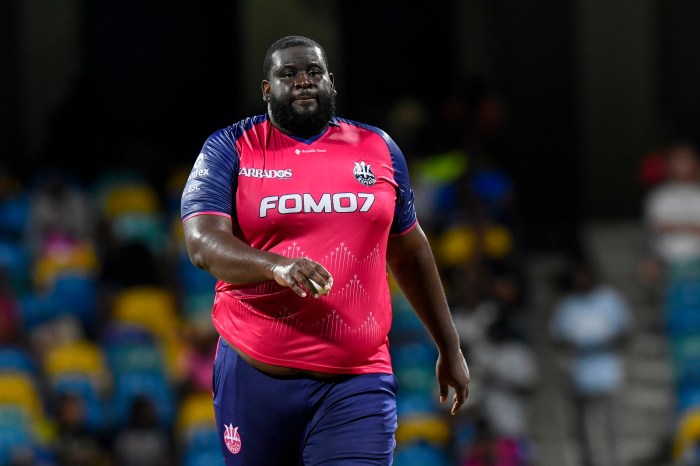MOSCOW (Reuters) – President Vladimir Putin promised extra funding to Russia’s regions on Wednesday and said small and medium-sized businesses would be eligible for direct state aid to help the economy cope during the coronavirus outbreak.
Russia has reported 24,490 infections and 198 deaths from the new coronavirus, with lockdown measures imposed across the country at the discretion of regional governors.
Russia, with over $550 billion in reserves and relatively low debt, has been cautious in boosting state support to fight coronavirus so far, as oil prices have fallen well below the budget balance level of $42 per barrel.
Putin’s first round of emergency measures, which included declaring that most employees should stop working for a period with full pay, had left many small business owners wondering how they would meet wage and other bills.
During a government meeting on Wednesday, Putin said that Russia’s regions would receive 200 billion roubles ($2.7 billion) in additional support and pledged more than 23 billion roubles to Russian airlines.
He offered more support to small and medium-sized businesses, pledging direct funding for salary payments at the upper level of the minimum wage, at 12,130 roubles a month.
Some small business owners had criticised Putin and the government and called for more support, including help paying salaries and moratoriums on rent.
On March 25, he said small businesses would be allowed to pay less national insurance for staff and to defer tax payments and, in some cases, loan repayments for six months.
On Wednesday, Putin did not say how much his fresh measures would cost the budget.
As of April 1, the government had allocated 1.4 trillion roubles to soften the economic hit from the virus, and raised the state borrowing ceiling to gain more flexibility in funding the costs without tapping its rainy-day fund where possible.
Sofya Donets, chief economist at Renaissance Capital, estimated in a note on Wednesday that already announced measures, including the latest ones, amounted to between 1.5% to 2% of Russia’s gross domestic product this year.
The Russian central bank, unlike some other regulators worldwide that cut interest rates to support economic activity, preferred to keep its key rate unchanged at 6% last month amid the rouble volatility.
But governor Elvira Nabiullina said last week that the central bank will consider an interest rate cut among other options at its April 24 board meeting as the economy is set to contract this year.
(Reporting by Vladimir Soldatkin, Darya Korsunskaya, Elena Fabrichnaya; Additional reporting by Polina Devitt; Writing by Alexander Marrow and Katya Golubkova; Editing by Toby Chopra, Philippa Fletcher)

